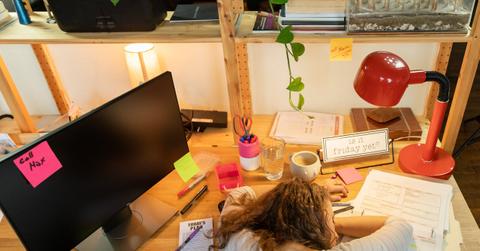How To Feel Awake Without Coffee

This article may start some controversy as coffee is America’s favorite beverage. According to the National Coffee Association Two-thirds of American adults drink coffee each day (66%) — higher than past-day consumption of tea, juice, soda, and bottled water — and 73% of American adults drink coffee each week.
However, if you’re trying to lower your caffeine intake, take a healthier approach, or find other options to add to your weekly schedule, Her Agenda has gathered alternative ways to feel awake without coffee.

Have A Sip Of Tea
National Geographic says both coffee and tea are rich in bioactive compounds — plant-based chemicals that promote health — but tea stands out for its particularly diverse array of antioxidants. These compounds, including flavonoids, polyphenols, and catechins, are linked to lower risks of heart disease, diabetes, and certain types of cancer.
While tea does contain caffeine like coffee, tea offers natural remedies and herbs that are beneficial to the body. Many naturalists choose tea over prescription drugs to fight against the common cold, flu, and much more.
Recharge With A Power Nap
Naps can be a game changer, especially if you have a long day. A power nap can range from 10 minutes to 30 minutes, but that restoration can make a huge difference to the trajectory of your day.
As reported by Cleveland Clinic, daytime naps might be especially helpful if you’re dragging after a lousy night’s sleep. But even for people who aren’t sleep deprived, a power nap can be beneficial.
“Power naps can help you refill your tank a bit,” according Dr. Samuel Gurevich.
A short afternoon nap can help you feel less sleepy and lead to improvements in:
- Mood
- Alertness
- Reaction time
- Short-term memory
- Focus and concentration
Munch On High-Protein Snacks
Real Simple says snacks like Greek yogurt and trail mix deliver a balanced mix of macronutrients and micronutrients that help keep blood sugar stable and curb fatigue. Also, energizing alternatives like loaded toast and hard-boiled eggs not only boost stamina but also support broader health benefits like brain function, gut health, and heart wellness.
Protein snacks are not only beneficial to your digestive system but will also provide you with the energy you need to get through your day. Edamame, smoothies, veggies and hummus, roasted chickpeas, and protein-powered salads are all great sources of energy and well-balanced snacks.

Practice Pushing Back From The Table
“Food coma’s” are a real thing, and it’s the last thing you want after a lunch break at work. Feeling sluggish and sleepy when you still have to finish the day may lead you to coffee. However, practicing leaving a little on the plate, and learning that you don’t have to finish the entire meal can be beneficial for your health and job performance.
The Cleveland Clinic says eating slowly is the key to getting your stomach, gut and brain in sync. Dr. Susan Albers recommends trying the PAUSE exercise, an acronym that can help you understand how you’re feeling so you can make the right decisions for your body’s needs at any given moment.
- Put on the brakes for a moment.
- Assess your hunger level on a scale of 1 to 10. (More on this in a moment!)
- Understand what your body wants and needs.
- Slow down before responding.
- Entertain your options.






